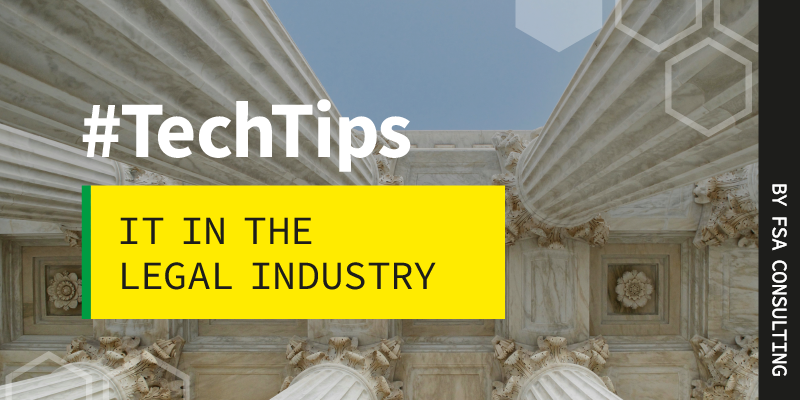IT compliance in the legal sector is crucial due to the sensitive nature of data handled by law firms. You need managed IT support that understands the legal industry. IT compliance ensures that legal organizations adhere to specific regulations, standards, and best practices related to information technology to protect client confidentiality, maintain data integrity, and mitigate cybersecurity risks. Moreover, lawyers have ethical obligations to maintain the confidentiality and integrity of client information. IT compliance upholds these obligations by implementing security controls, ensuring secure communication channels, and educating staff on best practices for handling sensitive information.
Read on for a few critical aspects of IT compliance in the legal sector.
Data Protection Regulations
Law firms must comply with data protection regulations such as GDPR (General Data Protection Regulation). GDPR applies to all businesses that process personal data for EU residents. In California, businesses subject to the CCPA (California Consumer Privacy Act) have the responsibility to respond to consumer requests and share certain notices explaining their privacy practices. These regulations govern the collection, storage, and processing of personal data and impose strict requirements for data security and privacy.
Client Confidentiality
Clients entrust law firms with highly sensitive client information, including legal strategies, financial records, and personal details. IT compliance ensures that appropriate measures are in place to safeguard client confidentiality. These Include encryption, access controls, and secure communication channels.
Cybersecurity Standards
Legal organizations must adhere to cybersecurity standards to protect against cyber threats such as data breaches, ransomware attacks, and unauthorized access. Compliance with standards like ISO 27001 or NIST Cybersecurity Framework ensure the implementation of robust security measures and regular security assessments.
- ISO20071 is an international standard for managing information security. It was originally published jointly by the International Organization for Standardization and the International Electrotechnical Commission in 2005. It was most recently revised in 2022.
- NIST Cybersecurity Framework is a widely used approach to help organizations, including legal ones, better manage and reduce cybersecurity risk.
Document Retention Policies
Legal firms often deal with large volumes of documents and emails. These must be retained for regulatory compliance or legal purposes. IT compliance involves establishing and adhering to document retention policies to effectively manage data retention, document archival, and document disposal.
Cloud Computing Compliance
Many law firms use cloud-based services for document storage, email hosting, and collaboration. Compliance with regulations and standards includes cloud computing, requiring firms to select reputable IT providers with adequate security measures and an understanding of data protection during transmission and storage in the cloud.
Training and Awareness
IT compliance efforts should include training programs to educate employees about cybersecurity risks, data protection policies, and best practices for IT usage. Staff awareness is essential for preventing human errors and security breaches. Additionally, setting up a compliance training program ensures that employees are all working toward the same goals and can prevent your company from accruing legal fees and penalties. For many companies, this is an insurance requirement.
Third-Party Risk Management
Organizations in the legal sector often engage third-party vendors for IT services or software solutions. It is essential to assess the security of third-party providers. This includes conducting security audits, and reviewing contracts as well as applicable regulations.
IT compliance is integral to maintaining trust, protecting sensitive information, and mitigating legal risks. By adhering to regulatory requirements and implementing robust security measures, law firms can enhance their cybersecurity posture and uphold client confidentiality and trust.
As the IT landscape in the legal sector continues to evolve and grow, you need a partner you can trust. Connect with FSA Consulting’s certified experts to explore our IT solutions.

